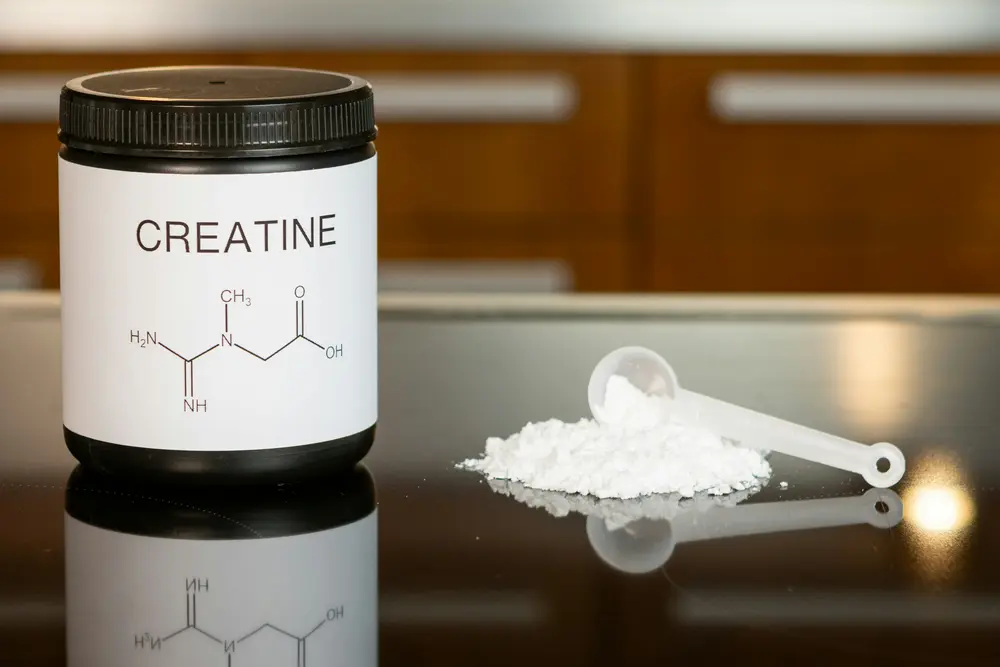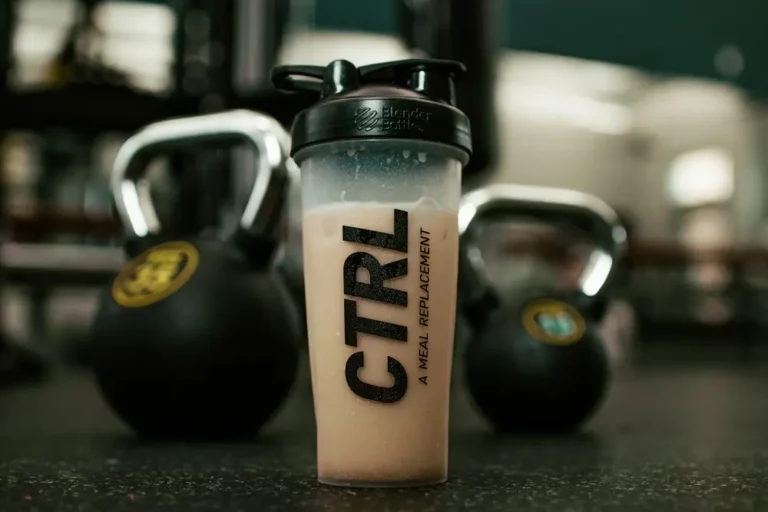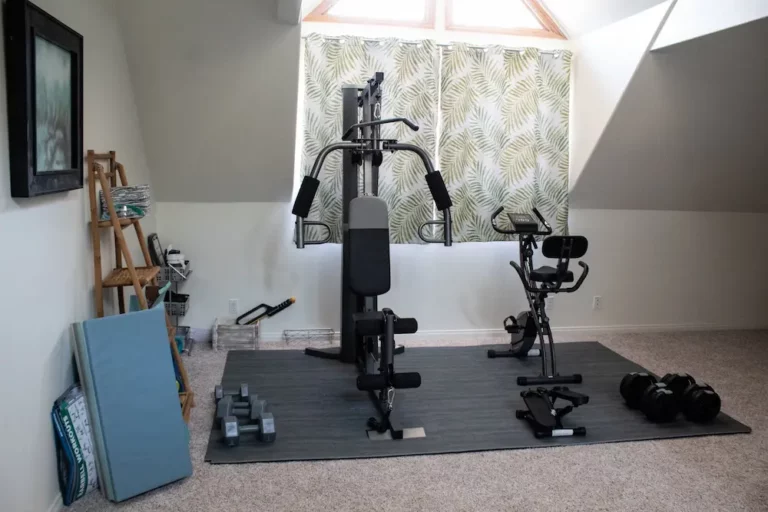Should You Take Creatine for Weight Loss? Benefits & Considerations
Deciding whether to take creatine while trying to lose weight can feel like navigating a maze with no clear exit. It’s a question I’ve pondered over countless cups of coffee, especially considering the mixed bag of advice out there. Creatine’s well-documented muscle and strength benefits are tempting, but what about when you’re cutting calories and aiming to shed pounds?
The science behind creatine is fascinating, showing not only its prowess in promoting muscle gains but also its safety and purity. Yet, as I dove deeper, I discovered it’s not just about bulking up. Other studies have highlighted creatine’s potential to boost endurance without piling on fat mass. So, if you’re like me, trying to figure out if creatine fits into your weight loss journey, you’re in the right place. Let’s unpack this together and see if we can find some clarity amidst the confusion.
The Connection of Creatine and Weight Loss
Embarking on a weight loss journey can be daunting, especially when you’re bombarded with a myriad of supplement options claiming to fast-track results. Among these, creatine stands out due to its popularity in the fitness realm. But the big question remains: Is creatine conducive to weight loss, or could it hinder your hard-earned progress? Let’s delve into the specifics of creatine as a supplement and address some common misconceptions surrounding its use and fat loss.
Creatine as a Supplement
Creatine is one of the most researched and proven supplements in the fitness industry. At its core, creatine is a natural compound found within our muscles and certain foods that help supply energy for heavy lifting or high-intensity exercise. It’s known for its ability to enhance strength, increase lean muscle mass, and help muscles recover more quickly during exercise. This can lead to more effective workouts and potentially quicker achievement of fitness goals.
When considering creatine for weight loss, it’s crucial to understand its primary function. Creatine works by storing high-energy phosphate groups in the form of phosphocreatine. Releases of these phosphate groups help produce ATP, which is a key energy source for muscle contractions and many other bodily processes. This energy boost can be particularly beneficial during workouts, enabling one to push harder and for longer periods.
Common Misconceptions About Creatine and Fat Loss
One of the most prevalent misconceptions about creatine is that it leads to fat gain, making it counterproductive for those trying to lose weight. Let’s clear the air: Creatine does not directly make you fat. Any weight gain observed after starting creatine is typically due to water retention in the muscles, not an increase in fat mass. This initial uptick on the scale should not be a cause for alarm; it’s simply part of the process as your muscles store more creatine and, with it, water.
Another misunderstanding is that creatine’s effectiveness is solely for those looking to bulk up. However, when integrated with a balanced diet and proper workout regimen, creatine can play a significant role in your weight loss strategy. It’s not about adding bulk but rather enhancing muscle endurance and overall workout performance. This increased performance can lead to a higher caloric burn during exercise, aiding in fat loss over time.
How Does Creatine Work?
Role of Creatine in Muscle Energy
When I delve into how creatine functions, it’s like opening a book on the body’s biochemistry that’s both fascinating and complex. At its core, creatine plays a pivotal role in how my muscles produce and utilize energy during high-intensity, short-duration exercises like lifting weights or sprinting. It’s stored in my muscles in the form of phosphocreatine. During exercise, phosphocreatine is broken down to produce ATP, the primary energy currency of my cells. This process is rapid, allowing me to sustain high-power output for longer before fatigue sets in.
Creatine supplementation boosts the available phosphocreatine storage, enhancing my body’s ability to produce ATP. This direct impact on energy metabolism means I can perform extra reps or sustain a sprint for a few seconds longer. These improved performances contribute to muscle growth and strength over time as the muscles adapt to handle increased workloads.
Creatine’s Indirect Impact on Weight Loss
When it comes to weight loss, the connection with creatine isn’t as direct as one might think. It doesn’t magically melt fat away or increase calorie burn like some thermogenic supplements. However, its ability to enhance workout performance indirectly supports my weight loss journey. By allowing me to work harder in the gym, I create a more significant energy demand — a key factor in shedding pounds.
Moreover, because stronger muscles lead to more effective workouts, the benefits of creatine extend beyond just the moments I’m lifting weights or sprinting. Muscle tissue is metabolically active, meaning it burns calories even at rest. The more muscle mass I have, the higher my resting metabolic rate becomes, which helps me burn more calories throughout the day, even when I’m not actively exercising.
Adding to this, there’s some evidence that creatine might help in increasing the proportion of fat burned during exercise. While the mechanisms aren’t fully understood, suggestions include improved efficiency in using fat as fuel and a potential increase in fat oxidation. This aspect is particularly intriguing because it hints at a more direct involvement of creatine in the fat-loss process, albeit on a smaller scale.
Benefits of Creatine in Weight Loss Efforts
When diving into the world of fitness and weight loss, one question I’ve found myself pondering is whether taking creatine can assist in shedding those stubborn pounds. Let’s explore how this popular supplement might play a role in weight loss efforts.
Enhanced Muscle Mass and Metabolic Rate
One of the key ways creatine has helped me in my fitness journey is through its impact on muscle mass and metabolic rate. Here’s how it works: Creatine contributes to muscle growth by increasing water content in muscle cells, signaling biological pathways that promote muscle growth, and enhancing protein synthesis. This process might lead to a slight increase in weight initially due to water retention in the muscles, but don’t let that deter you. The real magic happens as you build more muscle.
More muscle mass means a higher resting metabolic rate (RMR). Your body burns calories even when you’re not working out. Think of it this way: Muscle tissue is more metabolically active than fat tissue, so the more muscle you have, the more calories you burn throughout the day, even in your sleep. This concept has been a game-changer for my own weight loss efforts, as it’s essentially optimized my body to burn more calories without requiring constant activity.
Improved Exercise Performance and Recovery
Another benefit of creatine that’s been invaluable to me is its role in exercise performance and recovery. Creatine is well-known for its ability to enhance power output, increase strength, and improve high-intensity exercise performance. This means I’m able to push harder during my workouts, leading to more significant calorie burn and quicker progress toward my weight loss goals.
During high-intensity exercise, our bodies use creatine phosphate to help produce more ATP (adenosine triphosphate), which serves as a key energy source for muscle contractions. By supplementing with creatine, I’ve noticed an increase in my overall exercise capacity, allowing me to perform more reps or sprint at a higher intensity than before.
Recovery is just as important as the workout itself when it comes to weight loss. Creatine aids in this area by reducing muscle cell damage and inflammation post-exercise. This faster recovery process means I’m ready to hit my next workout sooner and with full intensity, keeping the momentum going in my weight loss journey.
This can also depend on how long creatine stays in your system since this time period is different for everyone and can cause different performance among consumers.
Incorporating creatine into my routine has offered me these benefits and more. It’s all about how we utilize these advantages in our quest for weight loss. Whether you’re lifting weights, sprinting, or engaging in any form of high-intensity exercise, creatine could be the supplement to help you reach those fitness milestones a bit quicker.
Creatine and Water Weight Considerations
Understanding Initial Weight Gain from Water Retention
When I first started taking creatine, I noticed a bit of weight gain, which initially had me worried. However, I soon learned that this was due to water retention, a common side effect when you begin supplementing with creatine. Here’s the deal: creatine pulls water into your muscle cells, increasing hydration. This process is beneficial for several reasons, including enhanced muscle recovery and performance. While the scale might show a slight increase in weight due to this water retention, it’s important to remember that it’s not fat gain. In fact, this initial weight gain is a sign that creatine is doing its job, saturating the muscles and preparing them for better performance and recovery. If you want to minimize water retention,
Long-Term Effects on Body Composition
I know what you’re thinking – what about the long term? Will the weight from water retention stick around, or will it hinder my weight loss goals? Here’s the good news: over time, the positive impacts of creatine on muscle growth and fat loss become more pronounced. As your muscle mass increases, your resting metabolic rate does, too, meaning you’ll burn more calories even when you’re not exercising. Research has shown that when combined with resistance training, creatine can lead to significant increases in lean muscle mass and decreases in fat mass. So, while you might see a slight uptick on the scale at first due to water weight, the lasting effects of creatine use are actually quite conducive to weight loss and improved body composition. Remember, more muscle mass doesn’t just look great; it also burns more calories, aiding in long-term weight control and fat loss.
Creatine Dosage and Usage for Weight Loss
When embarking on a weight loss journey, understanding the nuances of how supplements like creatine can aid your efforts is crucial. Notably, how much to take and when can significantly affect your results. Let’s dive into the recommended doses and the best ways to use creatine for weight loss.
Recommended Dosage for Effective Use
When it comes to creatine and its effectiveness, especially for weight loss, the amount you take matters. The general consensus in the fitness community and from various studies suggests starting with a dosage of 3-5 grams daily. This amount is believed to be sufficient for most individuals to see the benefits of creatine, including increased muscle endurance and a potentially higher resting metabolic rate due to increased muscle mass.
It’s also noteworthy that individual needs can vary based on factors like body weight, muscle mass, and activity level. Therefore, while the 3-5 grams daily rule is a good starting point, listening to your body and adjusting as necessary is essential. If you’re consistently engaged in intense training, the upper end of this range or slightly more might be more beneficial.
Integrating Creatine with Diet and Exercise for Weight Loss
When I first explored the idea of losing weight, I stumbled upon countless strategies and supplements, each promising remarkable results. However, my intrigue spiked with creatine – a supplement well-regarded in the bodybuilding world but not typically associated with weight loss. Through learning and personal experimentation, I’ve discovered how integrating creatine with a tailored diet and exercise regimen can be a game-changer for those looking to shed pounds while retaining or even gaining muscle strength.
Role of Exercise Type in Creatine Efficacy
One thing I realized early on is that not all exercises are created equal, especially when it comes to the effectiveness of creatine. While creatine is known to boost performance in high-intensity, short-duration activities, its impact can be less pronounced during prolonged, steady-state cardio workouts. But here’s the catch – I wasn’t looking to cut out cardio entirely.
Instead, I found a sweet spot by incorporating high-intensity interval training (HIIT) and resistance training into my routine. These types of exercises seem to benefit the most from creatine’s energy-boosting properties. HIIT, for instance, requires short bursts of max effort, perfect for the quick energy creatine can provide. Similarly, resistance training, which builds muscle and strength, aligns perfectly with creatine’s muscle-enhancing effects.
The result? Not only did I start seeing improvements in my workout performance, but I also began noticing changes in my body composition. It was clear that the type of exercise I chose directly influenced how effectively creatine worked in my body.
Balancing Creatine with Dietary Needs
Figuring out the right balance between creatine supplementation and my dietary needs was another critical piece of the puzzle. Early on, I learned that creatine isn’t a magic pill that allows me to eat whatever I want and still lose weight. Instead, it’s a tool that, when used correctly, complements a healthy, balanced diet.
I made sure to focus on a diet rich in proteins, healthy fats, and complex carbohydrates, aiming to create a slight caloric deficit to promote weight loss. At the same time, I remained mindful of hydration. Since creatine can increase water retention in muscle cells, staying well-hydrated became even more crucial to prevent any potential side effects like bloating or dehydration. However, make sure to observe how creatine makes you feel, since consuming too much creatine can cause IBS issues.
Incorporating creatine into my weight loss journey taught me the importance of listening to my body and adapting my approach based on the feedback it gave me. By meticulously tuning my diet to support my fitness goals and leveraging the performance-boosting benefits of creatine, I’ve been able to work towards a leaner, stronger physique without compromising on muscle strength or overall health.
Conclusion
Deciding to add creatine to my weight loss journey wasn’t straightforward. It’s been a mix of trial and error, balancing the scales between muscle gains and the numbers on the scale. The initial uptick in weight due to water retention threw me off, but understanding that it was a step toward greater strength and endurance helped me push through. I’ve seen improvements in my workouts, and yes, fat loss has been part of the journey. But I can’t stress enough the importance of chatting with a healthcare pro before diving into any supplement. It’s all about finding what works for you and your body. For me, creatine has become a valuable ally in reaching my fitness goals.
FAQ – Frequently Asked Questions
What are the side effects of taking creatine?
Creatine supplementation may lead to several side effects, such as kidney damage, liver damage, kidney stones, weight gain, bloating, dehydration, muscle cramps, and digestive concerns. It’s important to consult with a healthcare professional before starting creatine.
How effective is creatine for fat loss?
Creatine has been shown to be effective in enhancing fat loss when combined with resistance training. A study noted a slight increase in fat loss among those supplementing with creatine compared to those who didn’t, alongside significant muscle mass gains.
Can creatine affect my weight-cutting efforts?
No, creatine does not inherently make it harder to cut weight. In fact, it may actually boost your weight loss results, especially when paired with resistance training, by facilitating more significant fat loss and muscle preservation.
What are the best supplements for weight loss?
The best supplements for weight loss include GNC Pro Performance Thermoburst Hardcore, GNC Total Lean Burn 60, GNC Total Lean – Lean Shake 25, GNC Herbal Plus Garcinia Cambogia, and GNC Total Lean CLA. Always consult a healthcare provider before beginning any supplement regimen.
Is creatine beneficial for losing belly fat?
Yes, creatine can aid in losing belly fat by helping to build muscle mass, which enhances metabolism and increases the body’s capability to burn fat. Maintaining regular exercise is crucial for long-term benefits, including after discontinuing creatine.







